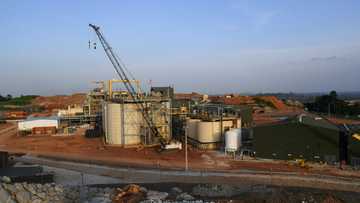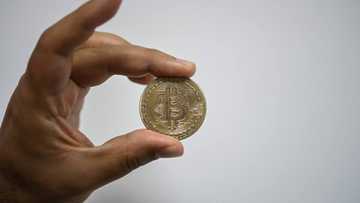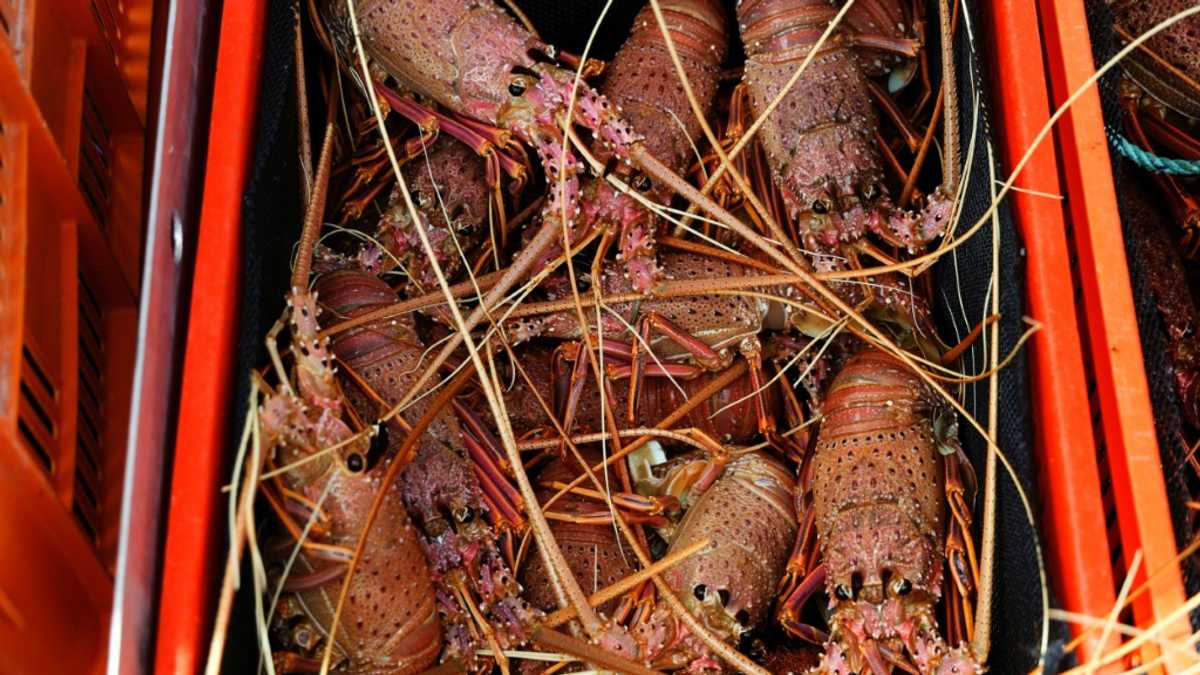The ban on Australian rock lobster is the last of several to be lifted by China.
Photo: TREVOR COLLENS / AFP
Source: AFP
China has lifted a ban on imports of Australian live rock lobsters, Canberra said Friday, demolishing the final barrier in a broader, multibillion-dollar trade war between the countries.
Beijing has banned or slapped retaliatory tariffs on more than US$12 billion worth of Australian exports, from wine to timber, during years of soured ties with Canberra.
The lobster trade, worth US$500,000 a year, was the last of a number of major Australian exports to remain under sanctions after months of Australian diplomatic efforts.
“China has confirmed that our live rock lobster exports can recommence into China,” Agriculture Minister Julie Collins told reporters.
“This is great news for our live rock lobster producers and fishers here in Australia, and importantly, it means that they can now apply for import permits to go back into this market.”
Lobsters were the “last of those trade impediments” imposed by China, she added.
China introduced a de facto ban on live rock lobster in 2020 while denying the move — and a raft of other punitive tariffs — were linked to the worst crisis in relations in decades.

Read also
Ivory Coast wants bigger share of its mining boom
Beijing was enraged by Canberra’s crackdown on Chinese foreign influence operations, the decision to block tech giant Huawei from running Australia’s 5G network, and a call for an investigation into the origins of the Covid-19 pandemic.
Australian Prime Minister Anthony Albanese said in October that Beijing would let the lobsters back in after a meeting with Chinese Premier Li Qiang in Laos.
Albanese said the confirmation of that reopening was the result of his government’s “calm and consistent” approach with China since his Labor Party came to power in May 2022.
End of trade ‘impediments
At the low point in relations, Australian exporters faced impediments on exporting wine, barley, coal, cotton, timber logs, oaten hay, copper ores and concentrates and red meat, the government said.
“The removal of restrictions on lobster marks the resolution of all outstanding impediments to trade from that period,” it said in a statement.

Read also
Asian markets mixed as Fed gears up for interest rate decision
The reopening to lobster may also give Albanese a political boon.
The prime minister must call an election in the first half of 2025, and many lobster producers come from Western Australia, a key battleground state.
The centre-left leader has spent much of his time in office trying to improve the trade relationship with China, Australia’s biggest trade partner.
At the same time, Australia is part of a loose US-led alliance that has aggressively pushed back against China’s bid for primacy in the Pacific region.
Before the ban, an estimated 97.7 percent of Australia’s rock lobster exports were sold to China, more than 1,600 tonnes a year.
Some Australian producers have since found new markets in the United States, Europe, Asia and the Middle East.
Many more skirted sanctions by creating a “grey market” of exports to China via Hong Kong, Hanoi and other Asian cities.
The volume of exports to Hong Kong alone shot up more than 6,100 percent after the ban, according to researchers at the University of Technology Sydney.

Read also
Asian markets retreat as China pledges fail to spark excitement
Exporters are hoping they can resume exports in time for Chinese New Year, when delicacies such as rock lobster are in hot demand.
PAY ATTENTION: Сheck out news that is picked exactly for YOU 
Source: AFP
